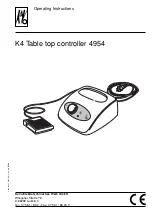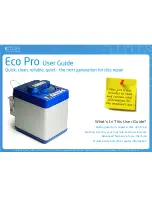
Operation Manual / TPS48-D/E.. - TPS61-D/E..
Maintenance
5
Turbine cleaning during operation
5.3
Page 63
© Copyright 2016 ABB. All rights reserved.
Sept
em
ber
2016
H
ZT
L2410_
EN
R
ev
is
ion
E
Prerequisites
CAUTION
Risk of corrosion and deposits
Impairment and damage of turbocharger by salt water and cooling wa-
ter additives in flow ducts
Don't use salt water for cleaning, but only clean fresh water.
Avoid corrosion on casing inner surfaces.
Let engine run for 10 minutes after wet cleaning.
CAUTION
Maximum temperature in front of turbine during cleaning
When cleaning, the temperature in front of the turbine will rise and can
heavily stress the material of turbine components. The temperature at
the turbine inlet can be up to 100 °C higher than the exhaust gas tem-
perature after the cylinder. This should be taken into consideration
when setting the operating point before cleaning.
Don't exceed maximum temperature in front of turbine when cleaning.
CAUTION
Impermissible thermal stressing and flooding of the turbine
Smaller volumes of water can result in poor cleaning. Larger volumes of
water lead to impermissible thermal stressing of the turbine compo-
nents and can cause flooding of the turbine.
Be absolutely sure to observe turbine cleaning parameters.
NOTICE
V-engines
In the case of V-engines with several turbochargers on each engine, we
recommend parallel cleaning of both turbochargers. This cleaning pro-
cess is faster and the risk of turbocharger surging is reduced.
5.3.2
















































